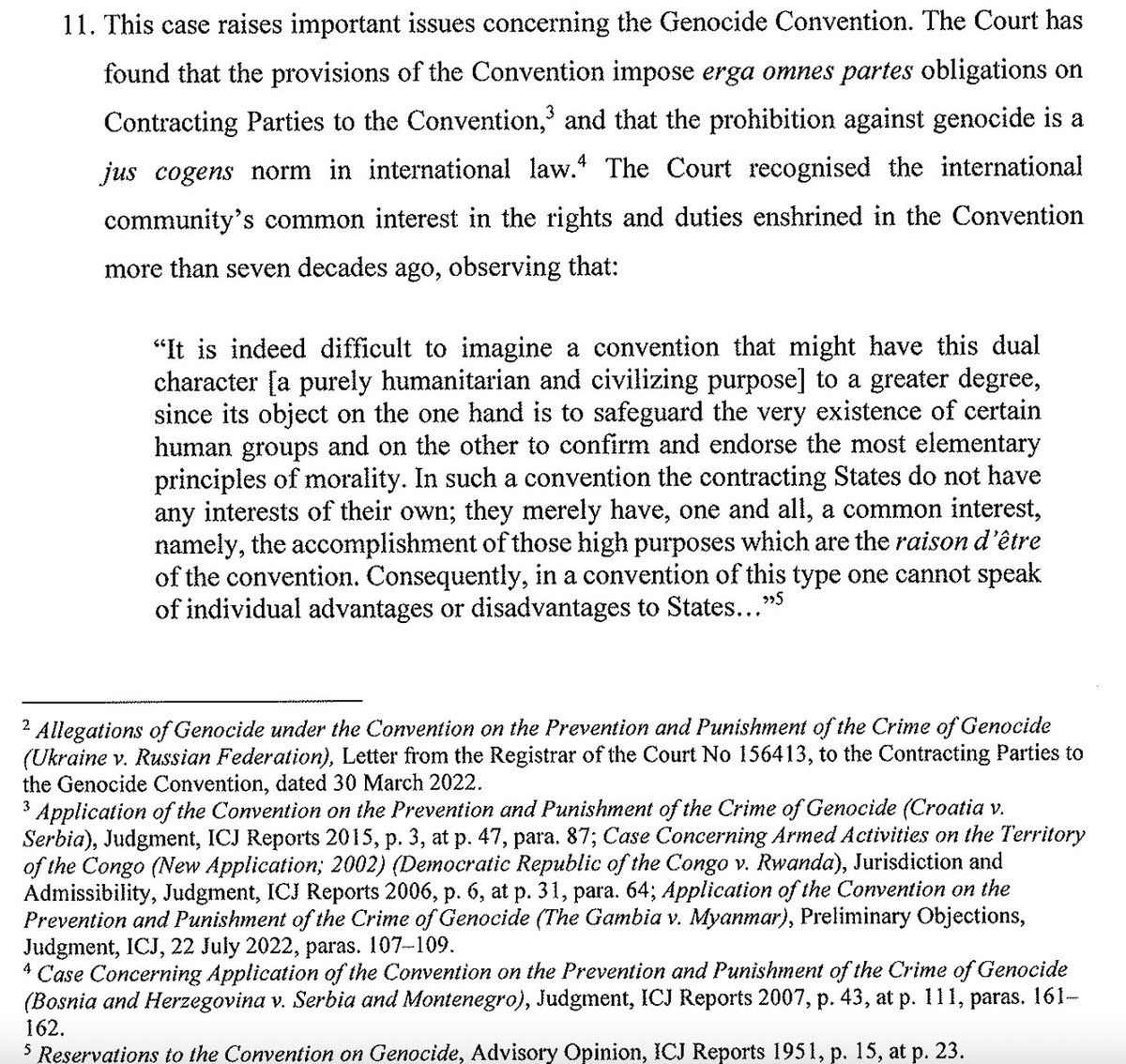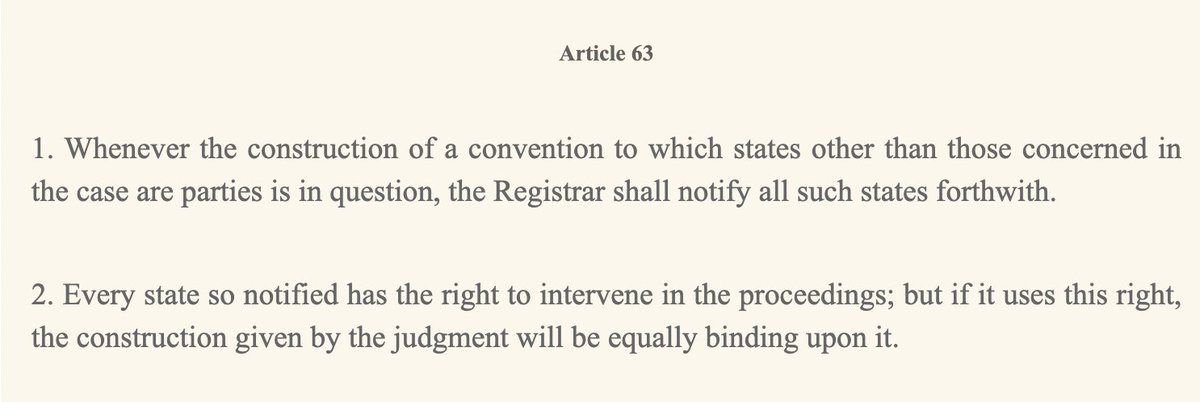
#Germany's declaration of intervention in #Ukraine v #Russia, pursuant to article 63 of the #ICJ Statute, is now available on the Court's website: icj-cij.org/public/files/c…
Some observations. 1/13 🪡
Some observations. 1/13 🪡
https://twitter.com/CIJ_ICJ/status/1566840452753637378
Perhaps the most conspicuous part of Germany's declaration is that it seeks solely to give its construction on article IX of the Genocide Convention (the compromissory clause), unlike 🇱🇻🇱🇹🇳🇿🇬🇧 which offered interpretations for several provisions and relating to the merits. 2/ 

Now, by reserving "right to submit further arguments as to the scope ratione materiae" if declaration deemed admissible, Germany would presumably address the interpretation of the Convention's substantive provisions. However, this doesn't really feature in present declaration. 3/
Germany is also first intervener to allude to difficulties arising from mass intervention, expressing its "willing[ness] to assist the Court in grouping its intervention together with similar interventions from other State parties". What "grouping" entails remains to be seen. 4/ 

Justifying its intervention, Germany presents article 63 as conferring a right to intervene by mere status of being party to Genocide Convention. However it buttresses this, referring to its interest in interpretation given the erga omnes (partes) nature of obligations. 5/ 



Germany goes a step further, arguing that it "has a specific interest in the Court exercising its jurisdiction" – in order to prevent reliance on the Convention to justify "blatantly illegal use of military force" – in light of "its own past". 6/ 

Still on preliminary matters of its declaration, like 🇱🇻🇱🇹🇬🇧, Germany seeks to underline that art 63 intervention is not limited to constructions of substantive treaty provision, highlighting art 63's unqualified language and citing Judge Schwebel in Nicaragua. 7/ 

Moving on to Germany's construction of article IX. Germany begins by focusing on the concept of "dispute". Not many surprises in its interpretation of the term "dispute", but intriguing is how Germany frames the dispute. 8/ 

That is, Germany notes that the case "raises the question whether an alleged behavior by the applicant State, which could fall within the provisions of the Genocide Convention, can justify a reaction by another state". 9/
Yet, Germany then (merely) frames the dispute as "disagree[ment] over the lawfulness of" *Ukraine's* conduct. Moreover, this is the focus of the remainder of Germany's declaration – whether Ukraine's non-violation claim is encompassed within jurisdiction ratione materiae. 10/ 







Germany answers this question in the affirmative, particularly referencing the art IX formula, which extends jurisdiction to disputes on "fulfilment" of the Convention (also of interest is recognition of permissibility of third party countermeasures re erga omnes violations). 11/ 

Nevertheless, somewhat by-the-way in its analysis on jurisdiction ratione materiae – and more to-the-point in its conclusions – Germany appears to consider that jurisdiction extends to whether Russia's invasion is a violation of the Convention. 12/ 



In concluding, Germany's declaration seems to be narrowest in scope of interveners to-date, focusing on Genocide Convention compromissory clause. Even on compromissory clause, it appears primarily focused on Ukraine's non-violation claims, rather than Russian violations. 13/13
• • •
Missing some Tweet in this thread? You can try to
force a refresh








